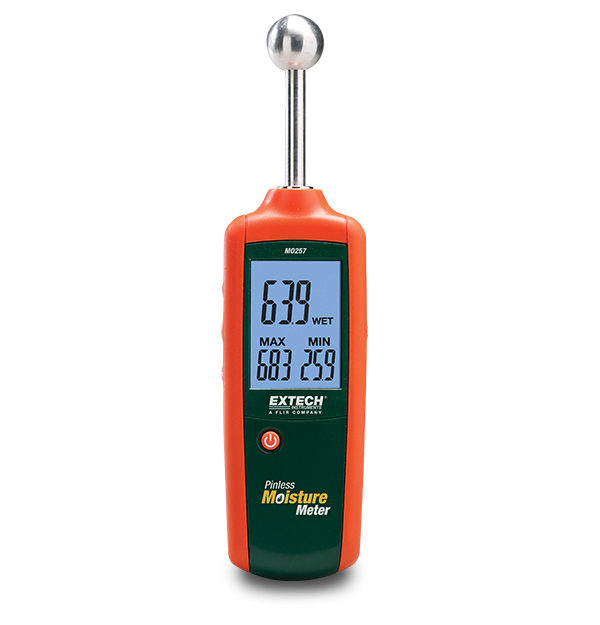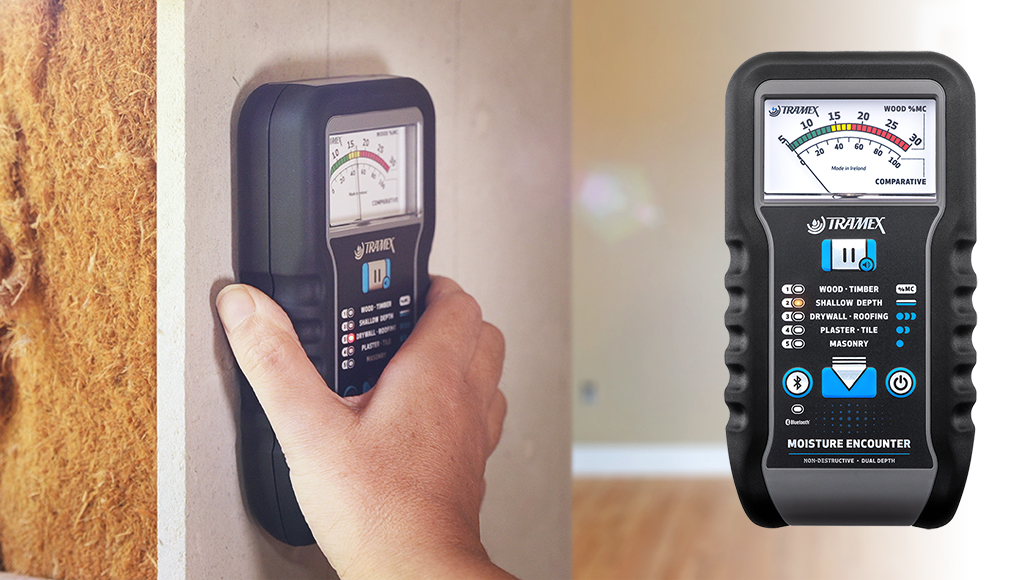The Ultimate Guide to Moisture Meters: A Comprehensive Overview and Just How They Can Conserve You Money
In the realm of structure maintenance, construction, and numerous sectors, the significance of accurately gauging wetness levels can not be overemphasized. Dampness meters function as vital tools in spotting and monitoring moisture web content in materials, assisting in stopping costly problems and guaranteeing the quality of items. Understanding the subtleties of different kinds of wetness meters, their applications, and the possible cost-saving benefits they supply can be a game-changer for specialists and companies alike. Uncovering exactly how these tools can not only simplify processes yet also add to financial cost savings is a trip worth starting.
Sorts Of Moisture Meters
One common type is the pin-type wetness meter, which determines the electric resistance in between 2 pins put into a material. Pinless moisture meters, on the other hand, use electromagnetic sensor plates to check a bigger location without creating damages to the product's surface area.
Infrared wetness meters determine the thermal buildings of a product to identify its moisture web content non-invasively, making them valuable for applications where pin or pinless meters may not be suitable. Recognizing the various types of wetness meters offered can assist sectors choose the most appropriate device for their certain moisture dimension requirements.

Advantages of Using Moisture Meters

Additionally, utilizing wetness meters can bring about raised energy effectiveness. By recognizing locations with high moisture degrees, such as leakages or bad insulation, changes can be made to boost power preservation and minimize energy expenses. In agricultural settings, wetness meters play a vital duty in maximizing plant returns by allowing farmers to keep an eye on dirt wetness levels and make notified irrigation decisions. Overall, the advantages of making use of dampness meters extend throughout numerous markets, offering economical options and promoting better quality control techniques.
How to Pick the Right Moisture Meter
Picking the proper wetness meter includes considering vital aspects such as material compatibility, dimension variety, and calibration accuracy. When selecting a moisture meter, it's vital to make sure that the meter is ideal for the certain material you will be screening. Different products have varying electric properties that can impact moisture readings, so picking a meter developed for your product is important for exact results. In addition, consider the measurement array of the moisture meter. Make sure that the meter can spot wetness levels within the variety needed for your applications. Calibration precision is one more essential element to remember (Moisture Meter). Select a moisture meter with trusted calibration to guarantee exact and regular readings. Some meters might require periodic calibration modifications, so understanding the calibration process is necessary. By carefully assessing these aspects, you can pick a dampness meter that meets your needs and supplies precise dampness dimensions for your tasks.
Proper Techniques for Moisture Meter Usage
To make certain precise moisture readings and maximize the performance of a moisture meter, using appropriate methods official website is essential. When utilizing a pin-type moisture meter, place the pins or probes right into the material being checked until they make full get in touch with. By adhering to these appropriate strategies, users can depend on their dampness meter to offer credible dampness levels, helping in preventing expensive damages or ensuring high quality in numerous applications.

Price Cost Savings Via Moisture Meter Applications
How can the strategic usage of wetness meters lead to considerable expense financial savings check that throughout different markets? In the farming market, wetness meters aid in identifying the ideal time for gathering crops, avoiding over-drying or excess wetness that can impact the final product's top quality.

In addition, in the food handling industry, wetness meters are vital for checking item top quality and making sure compliance with safety and security laws. By accurately gauging moisture content in food products, manufacturers can stop perishing, preserve quality, and reduce waste, resulting in substantial expense savings. Overall, the critical application of dampness meters is a useful investment that can bring about significant expense reductions and boosted effectiveness across numerous markets.
Conclusion
To conclude, wetness meters are valuable devices for discovering and measuring moisture degrees in various products. By utilizing the ideal moisture meter and adhering to proper strategies, users can properly avoid pricey damages created by excess moisture. Buying a high quality dampness meter can lead to substantial cost savings in the lengthy run by identifying possible issues early and making it possible for timely removal. Ultimately, wetness meters are crucial instruments for preserving the honesty and longevity of structures and products.
Wetness meters offer as crucial devices in detecting and keeping track of moisture material in materials, helping in stopping pricey problems and making certain the top quality of items. Infrared dampness meters gauge the thermal residential or commercial properties of a material to identify its wetness content non-invasively, making them useful for applications where pin or pinless meters may not be suitable.Moisture meters offer invaluable advantages in properly checking and analyzing dampness levels in diverse products and settings. In farming settings, moisture meters play an important function in optimizing plant returns by allowing farmers to keep track of soil dampness degrees and make informed watering choices.In verdict, moisture additional hints meters are important tools for gauging and finding wetness levels in numerous materials.